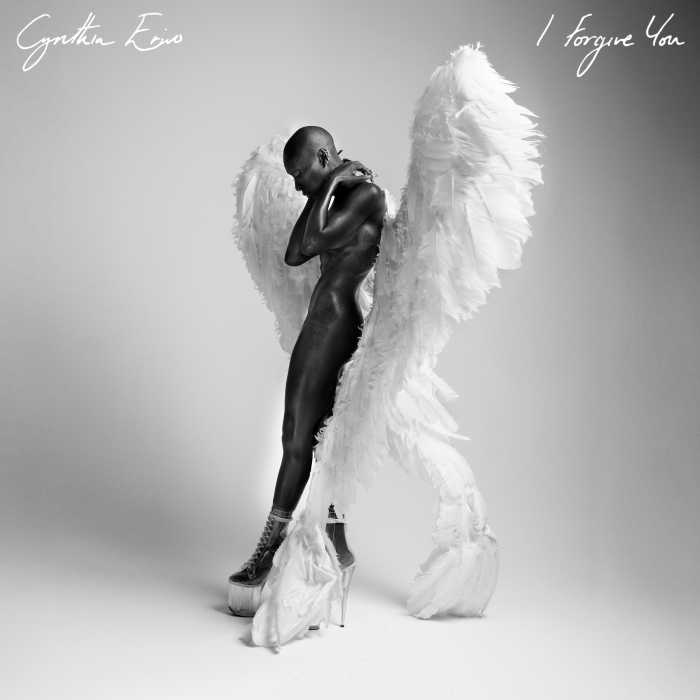This month, Gay City News’ attention turns to the latest releases by lesbian country singer Brandy Clark and queer indie rock artist Alex Lahey.
Brandy Clark | s/t | Warner | May 19
You might not know Brandy Clark’s name, but if you’ve listened to country music in the last 15 years, you’ve heard her songs. Although she’s been releasing her own music for a decade, she worked as a songwriter in Nashville since 2005. Her lyrics for Kacey Musgraves’ 2013 hit “Follow Your Arrow” (“kiss lots of boys/or kiss lots of girls, if that’s something you’re into/when the straight and narrow gets too straight”) might be rather tame, but they were a breakthrough for mainstream country and contributed to radio stations shunning Musgraves despite her popularity. Clark’s profile was also boosted recently when she received an Emmy nomination for co-writing the musical “Shucked.”
Clark’s latest solo album has something to prove. While it adopts classic traditions of country songwriting (“Ain’t Enough Rocks” is a murder ballad about a woman taking revenge on an abusive man), it also uses them to tell her personal story. Clark grew up in Washington state, rather than the south, and “Northwest,” this album’s rocker, celebrates the region with a gusto that synthesizes Lucinda Williams and Tom Petty. “She Smoked In the House” ties together memories of her grandmother with her introduction to country music.
Queer Americana artist Brandi Carlile produced Clark’s album (as well as singing on “Dear Insecurity”). Clark excels at stripped-down, piano-based ballads. “Tell Her You Don’t Love Her” is a rhythmically stiff misfire, whose programmed drums don’t match the warmth of Clark’s voice and lyrics. The album’s best songs stick to more traditional instrumentation, as well as string arrangements.
As long as Clark’s been working, this album suggests something newly personal and revealing in her music. “Dear Insecurity” gets very frank about women’s body issues and fears of aging, embodying them as though they were a hostile person with whom she could argue. The song digs into the uncomfortable truth that these attitudes, while socially imposed, are impossible to avoid internalizing. On “Come Back to Me,” she sings graciously to her ex-lover while encouraging her to return. The album builds upon the plainspoken storytelling about women’s lives that country music has always incorporated, while expanding the range of those stories.
Alex Lahey | “The Answer Is Always Yes” | Liberation | May 19
Alex Lahey begins her album by declaring “everyone’s a bit f**ked up, but they think they’re OK.” Before anyone else can criticize her, she complains “I’ve been here before, playing the same three f**king chords.” Her witty, biting personality (and love of four-letter words) permeates her music. She tends to play the slacker. In her music video for “Every Day’s the Weekend,” she falls asleep during a factory job overseeing a conveyor belt of pickle jars. On “Wes Anderson,” released on her debut ep in 2016, she sang “I stayed in the shower to avoid doing some useful s**t.” Her song titles and lyrics lean towards broad declarations: “I Haven’t Been Taking Care of Myself,” ”You Don’t Think You Like People Like Me,” “You’ll Never Get Your Money Back,” “They Wouldn’t Let Me In,” and, of course, her latest album’s very name. The edge of sarcasm to “Congratulations” is impossible to miss, as the song hints at lingering bitterness towards a lover who rejected the narrator to marry someone else
Lahey makes joyful, driving music. Her music lays at the intersection of pop and punk, especially in attitude. While her melodies feel familiar, landing near Cheap Trick, Redd Kross and early Weezer, they’re played with fresh enthusiasm pushed further by crisp production emphasizing rhythm guitar and drums. (The tambourine on “All the Way Down” makes the song race by even faster.) Her choruses are punchy without turning bombastic. The album’s mood slows down on its final three songs.
Lahey produced, wrote all the songs, and played most of the instruments on her first two albums. For “The Answer Is Always Yes,” she reached out to other collaborators, including U2/Taylor Swift producer Jacknife Lee on “Good Time.” She only penned one song entirely by herself. As she moves to major label distribution in the US for the first time, the album bids to find a wider audience internationally than before, but it doesn’t compromise to do so. Lahey’s combination of cutting humor and a hopeful undercurrent, even when it contradicts her lyrics, suits the present moment. (In 2017, she sang “we can’t marry even if we want to” on “There’s No Money,” before marriage equality came to her native Australia.) Her kiss-offs and complaints never sound bitter because of their underlying spirit of triumph.



































